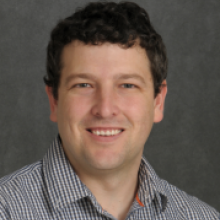Part Four of our AI Researcher Profile series welcomes Professor H. Andrew Schwartz of the Department of Computer Science. Through his research, Professor Schwartz has bridged the worlds of psychology and artificial intelligence together in order to predict and diagnose the health of others.
AI Institute: You have developed techniques for symptom-detecting through social media analysis. Can describe what that is and why it is exciting?
Professor Schwartz: Increasingly a lot of healthcare and wellbeing is becoming more psychological, behavioral and cognitive. My lab aims to introduce psychological and behavioral patterns about who people are, based on their language patterns. We are living our lives online more and more, and we are leaving digital traces of our everyday lives that can be key to understanding mental health and psychological wellbeing. We can trace people’s future health trajectory based on volunteers’ social media language patterns. For example, for substance use disorder, this allows us to predict their likelihood of relapse, dropping out, or remaining abstinent 90 days into the future. We see that we get a reliable risk assessment from their language patterns beyond our current forms of detection and prediction such as expert interviews.
AI: What inspired you to focus your research towards health and social sciences?
PS: I was always interested in psychology. During my PhD program we had to take outside graduate courses and I took those courses in psychology. Psychology is particularly interesting because you are often measuring something that is not concrete, like that in computer science. I find that to be a really interesting challenge. My interest in artificial intelligence, similarly, is trying to get computers to understand language. When it comes to this, there are very few concrete rules. The understanding of language that people can do is very hard for machines to execute; this is a similar property to psychological problems. I believe this has the potential to benefit people and make for more benevolent AI.
AI: How does AI play a role in areas like health and the social sciences?
PS: AI is designed to solve complex problems in areas like health and the social sciences, specifically psychology. To understand an individual, especially in a social environment, is especially complex. We can get closer to understanding human beings using AI techniques.
AI: Much of your symptom-detecting technology is heavily based in machine learning and natural language processing. What do you see as the future in this work?
PS: We are doing well at being able to predict. We can assess risk and give a score. One of the ways to understand our conclusions is to make models which can not just predict the future but can truly aid health care delivery. It is conceivable that a model can predict what will happen in the future but it will not be able to treat a person. I also see another important direction for machine learning and natural language processing which is more time series analysis, when it comes to understanding people, understanding change over time is very important.
AI: Tell us about your work in natural language processing that is being used to detect symptoms of the novel COVID-19 Virus. How will this technology change the face of medical science?
PS: This is ongoing work to figure out if we are still finding useful information here. We look at those who have tested positive for COVID-19 and check their language patterns. In looking at people’s digital footprint (phenotype) we can look back and analyze any reliable patterns, and early signs in their language, to see if they are behaving differently. The idea is to try to discover signs and symptoms that are not known yet. What remains to be seen is if we can find something that is novel, which could make a really big difference for the face of the coronavirus.
AI: Can this social media analysis be used for other diseases outside of COVID-19?
PS: Yes, most of our work is centered around mental health. We can predict whether somebody can be diagnosed with depression using six months of consenting individuals’ social media data about as accurately as standard screening surveys. We have to measure against the existing tools for diagnosing and against future behavior. In measuring against these existing tools, we do quite well. When measuring against future behavior, we can predict even better the future behavior that subjects will act upon. With this work, you have to triangulate your evaluations. AI is another angle that can add more substance and act as a supplement to understanding people. Unlike AI, psychological outcomes are less straightforward. While that creates new challenges, it can also make things more interesting.
AI: What suggestions do you have for somebody looking to get involved with AI?
PS: It’s important to have a fundamental understanding in three fields: computer science, statistics, and the third field that most may not consider, is a social science to get an understanding of the complex nature of people. AI is now more than ever, encountering the need to be human-centered -- how is this AI-tool going to be useful and how can it benefit people? For AI to be useful, AI has to understand people, and exist to the benefit of humankind.
AI: Thank you, Professor Schwartz.


